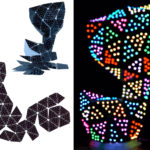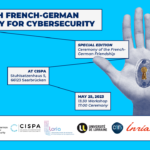

Every year, the arrival of new researchers and teacher-researchers enrich Loria’s teams. We’d like to welcome them and invite you to take a few minutes to discover their career paths and projects!

In this digital age, the security of information exchanges is vitally important, especially for electronic voting. Alexandre Debant and Lucca Hirschi, both researchers at Inria with Pesto, a joint Inria/Loria project team, identified vulnerabilities in the protocol used for the French legislative elections in June 2022 and proposed solutions for improvement that were successfully implemented in the following elections.
Read the original article on Inria.fr

Imagine flexible electronic circuits capable of being shaped to fit specific objects or products created using 3D printing. This is now possible thanks to PCBend, an open-source process developed by two young researchers: one from the Inria-Loria project team MFX, and the other from the Institute of Science and Technology Austria. Their innovation is set to be unveiled at the next edition of the Siggraph global conference, which will run from the 6th to the 10th August 2023 in Los Angeles.
Read the original article on Inria.fr


The 6th Franco-German Day for Cybersecurity – Special Edition: Celebration of Franco-German friendship between Loria (CNRS, Inria, Université de Lorraine) and CISPA, will take place on Thursday, 25 May at CISPA, Saarbrucken.
